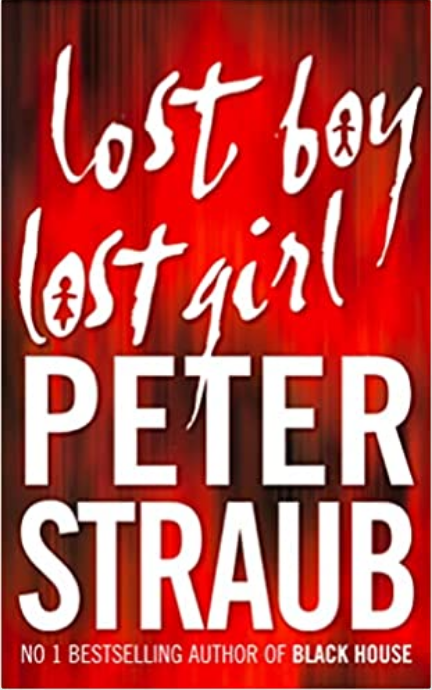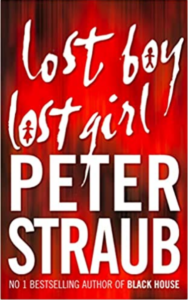
Lost Boy Lost Girl
A Book Review Tribute to Peter Straub

On September 4 the horror community was rocked by the death of Peter Straub. The iconic writer’s novel Ghost Story (1979) is often listed as one of the top ten books in the genre. And rightfully so. Since I’ve read Ghost Story multiple times, I decided to mourn Straub’s passing and honor his memory by revisiting another of his works. Lost Boy Lost Girl (2003) excellently displays the author’s literary bravura. Straub possessed a dexterous sleight-of-hand stylistic ability that heightened his creation of narrative ambiguity. In Lost Boy Lost Girl there is a tweaking of the meta mentality and a toying with temporal structure. Both of those devices combine with shifts in points of view to make the storyline deliciously ambiguous.

The principal characters are New York based writer Timothy Underhill and his Midwestern teenage nephew, Mark. A shocking death in their family is the catalyst for an unearthing of buried secrets. The death prompts Mark to be more deeply drawn to a neighborhood house that suddenly captured his attention. While concurrent echoes of serial killings from years ago come back home to roost in the form of present-day abductions/slayings of some of the town’s young males.
Males are, despite the book’s title, the focus of the story and generally well fleshed out. For example, Mark’s skateboarding buddy Jimbo is depicted as more than just a sidekick. He is a devoted friend and sensitive soul. After reluctantly joining in a cursory investigation of the empty house that has become Mark’s obsession, Jimbo’s sensitivity is on steroids: “Within Jimbo, something, a particle of his being that felt like remembered pain, moved as if it had been touched. A sense of bereft abandonment passed through him like an X ray, and in sudden confusion he turned from the window. The sheets sagging over the furniture in the living room spoke of a thousand lost things.”
Peripheral male characters are endowed with some depth and surprising traits and motivations. Female characters are integral to the plot but less developed. The titular Lost Girl is a luminous creature with a tragic history, but we don’t see enough of her. Mark’s mother Nancy is better delineated, agonizing over conflicting feelings and guilt. Another noteworthy lady is Jimbo’s mom, whose movie-star good looks makes her an object of desire for many of the guys (Mark included) in the community. The physical description of the hot redheaded mama made me think that Julianne Moore in her forties would have been great casting in a fantasized movie adaptation. And the looks ascribed to Mark suggested to me a slightly younger Timothée Chalamet. Both musings are a bit anachronistic but since Straub liked to tinker with sequencing and time, such liberties can jokingly be taken.
It was with great respect and a good measure of sorrow that I reread the Bram Stoker Award winning Lost Boy Lost Girl. The re-reading reinforced my tremendous respect for Peter Straub’s tremendous talent, and the sorrow I felt (and still feel) is part and parcel of losing him. Lost Boy Lost Girl inspired Straub to write In the Night Room, a 2004 sequel of sorts, in which the character of author Timothy Underhill returns. Just as Peter Straub returns to us each time we open one of his books and immerse ourselves in his magnificent prose.
